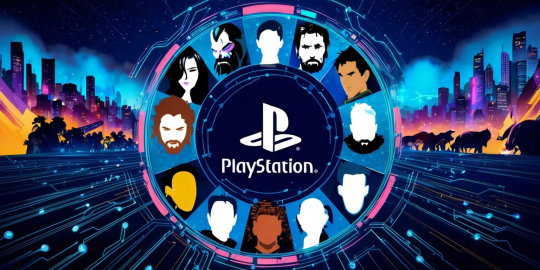
PlayStation has carved out an undeniable niche as a titan of the gaming industry, influencing the way we engage with video games as a form of art and storytelling. Since its inception, it has created not just an avenue for entertaining titles but has been home to some of the most revolutionary games that have made a lasting impact on the gaming world. This exploration of PlayStation's legacy highlights several exclusives that redefined what gaming could be, stepping beyond mere entertainment to create memorable, impactful experiences. Let’s examine the collection of notable titles spanning various genres, each a hallmark of innovation and storytelling.
Redefining Racing: The Power of Gran Turismo
When Gran Turismo was unleashed in 1997, it was not just another racing game; it was a game-changer. Developed by Kazunori Yamauchi, this title paved the way for realistic driving simulations, enabling players to experience the excitement of the track. It introduced meticulous car customization, a feature that distinguished it from other racing titles of its time. The success of Gran Turismo triggered a surge in the racing genre, making it a benchmark for quality and innovation, with nearly 11 million copies sold worldwide.
Cultivating Challenge: The Legacy of Demon’s Souls
FromSoftware's 2009 release of Demon’s Souls marked a revolutionary step for the action RPG genre. Initially seen as a gamble, this game became the foundation of the Soulslike subgenre, characterized by its punishing difficulty and methodical gameplay. Players learned to adapt to their surroundings, facing insurmountable odds with each respawn. Hidetaka Miyazaki, the game's director, became a hallmark of game design excellence, and the title itself revived a company on the brink of obscurity, influencing an entire generation of developers.
The Depth of Humanity: Exploring The Last of Us
Released by Naughty Dog in 2013, The Last of Us transcended the boundaries of traditional video games, creating an emotional narrative through the profound relationship between Joel and Ellie. Set against a post-apocalyptic backdrop, it showcased how video games could tell rich, mature stories filled with complex characters and deeply rooted emotions. This title proved that video games could evoke feelings akin to those felt while watching films, earning it a spot in the pantheon of great storytelling mediums.
A New Era of Adventure: Uncharted: Drake’s Fortune

When Uncharted: Drake’s Fortune debuted on the PlayStation 3, it transported players into an action-packed adventure reminiscent of Hollywood blockbusters. The game’s combination of gripping narrative, engaging characters, and stunning visuals captivated audiences, and Nathan Drake emerged as an iconic protagonist in gaming history. Amy Hennig played a crucial role in crafting a story that intertwined seamlessly with exhilarating gameplay, giving birth to a franchise that stood strong for years.
Psychological Horror Redefined: Silent Hill
The Silent Hill series, particularly the original game launched in 1999, revitalized the horror genre. Unlike many titles that relied on jump scares, it prioritized atmosphere and psychological terror, employing rich symbolism and unnerving imagery. This approach not only terrified players but also influenced a myriad of subsequent games and adaptations in film and television, creating a new standard for horror storytelling.
The Art of Subtlety: Ico’s Narrative Innovation
In 2001, Ico brought forth a unique narrative style that combined minimalist storytelling with a stunning visual experience. Despite its initial commercial struggle, Ico has since been recognized as a seminal title, influencing acclaimed games like Metal Gear Solid 3 and The Legend of Zelda: Twilight Princess. Its character-driven storytelling and the innovative use of light and shadow remain a benchmark for many to emulate.
Epic Journeys: The Impact of Final Fantasy 7
Final Fantasy 7 shattered expectations when it launched on the original PlayStation, forever altering the RPG landscape. With its intricate plot and strong character development, the game engaged players in narratives that resonated on a personal level. It also tackled themes such as eco-terrorism and personal sacrifice, all wrapped in breathtaking graphics and memorable soundtrack. The impact of this title extended far beyond its genre, helping propel Japanese RPGs into the Western mainstream.
A Masterclass in Horror: P.T. (Silent Hills)
Though it turned out to be a teaser for a project that would never see completion, P.T. (Playable Teaser) served as a landmark entry in the horror genre. Its psychological elements, combined with an unending cycle of unease, changed how players engage with horror experiences, showcasing innovative techniques that have inspired countless titles since its release. The genius in its subtlety and atmosphere left a mark that will resonate in horror gaming for years to come.
Tactical Espionage Revolutionized: Metal Gear Solid
Before Metal Gear Solid was released, stealth mechanics were often an afterthought in action games. Hideo Kojima’s vision transformed this approach, introducing players to tactical espionage that required planning and strategy. The game incorporated cinematic storytelling elements that made it feel like a playable film, setting a standard for narrative depth in video games. Its profound influence reshaped numerous gaming genres.
The Evolution of Gaming Narratives
Each of these titles contributed significantly to evolving the medium beyond entertainment. The boundaries of storytelling, character development, and gameplay complexity were pushed, inviting players into worlds rich with emotion and depth. Today’s games owe a debt of gratitude to these pioneering titles that paved the way for exploration and creativity in the industry.
The Integration of Visuals and Gameplay
As graphics technology advanced, games began to explore how visuals could enhance narratives. Titles like Ico and The Last of Us showcased beautiful designs that weren’t merely artistic but integral to storytelling, creating atmospheres that captivated players even further. This blend of aesthetics and gameplay led to a new age of immersive experiences in gaming.
Legacy and Future
Looking ahead, the legacy of these PlayStation exclusives will continue to inspire future game developers. They’ve shown that video games can not only entertain but also provoke thought and a range of emotions. As new titles emerge, aspiring creators will look back on these classics, using them as blueprints for storytelling and innovative gameplay, ensuring that PlayStation continues to lead in the gaming industry.
Engaging the Player Base
What’s remarkable about the legacy of these games is their ability to engage a community of players who still discuss their impacts today. Whether through forums, blogs, or social media, the conversation around these iconic titles continues, highlighting how integral they are to the fabric of gaming culture. Players reflect on their experiences, share stories, and connect through their shared love of these monumental games.
With the progress made in technology and a constantly evolving-growing audience, the future of gaming is bright, drawing on the groundwork established by these iconic PlayStation titles. Are you ready for the next surge of creativity in the gaming industry? Let the discussions begin!